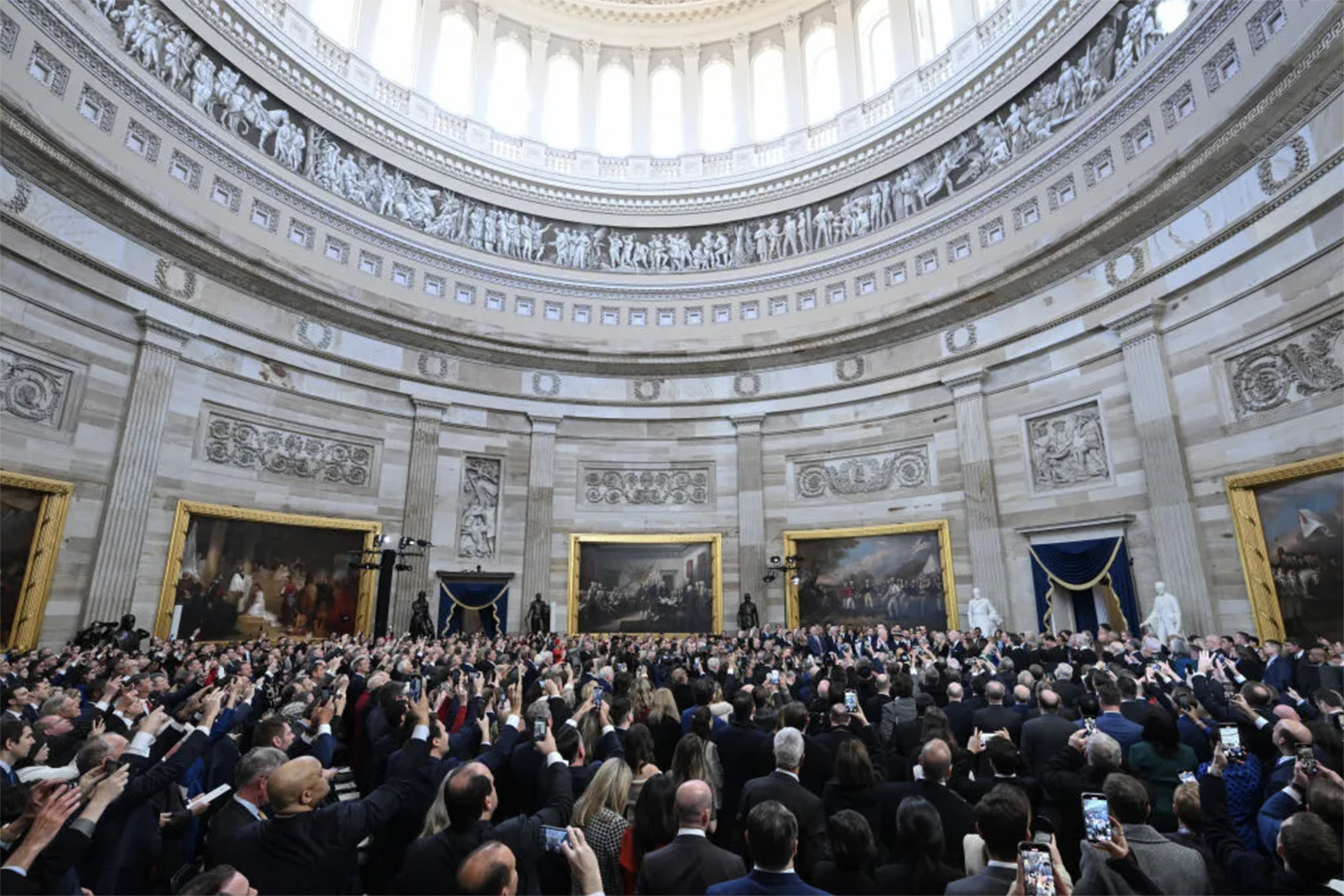
WASHINGTON (RNS) — A Michigan imam was unexpectedly absent from President Donald Trump’s inauguration on Monday, raising questions as to why the Islamic leader did not offer a benediction as scheduled.
Earlier this month, officials listed Imam Husham Al-Husainy, who runs the Karbalaa Islamic Education Center, among the four faith leaders who would offer a benediction at Trump’s inauguration. The presence of the Islamic leader — believed to be the first who would have offered a prayer at an inauguration — was seen as a nod to Trump’s unexpected gains with Muslim Americans during the campaign: Al-Husainy, a Shia Muslim cleric who expressed support for Trump during the campaign, hails from Dearborn, a city with a large Muslim American population.
The reason for his absence was not immediately clear. Although listed on earlier copies of the inauguration bulletin sent to press, Al-Husainy’s name was not on the version of the program handed out to attendees on Monday morning.
Efforts to reach Al-Husainy and the Karbaala Islamic Education Center were unsuccessful, and inauguration officials did not immediately respond to a request for comment.
Al-Husainy’s association with Trump was seen as controversial in some conservative pro-Israel circles. The announcement of his involvement with Trump’s inauguration spurred outlets such as the New York Post to draw attention to Al-Husainy’s 2007 appearance on the Fox News show “Hannity & Colmes.” According to a transcript of the appearance, Al-Husainy was repeatedly interrupted by the hosts but declined to offer a “yes” or “no” answer when asked whether Hezbollah was a terrorist group, insisting he wanted more time to explain his answer.
Last week, the Zionist Organization of America issued a statement decrying Al-Husainy’s inclusion in the inauguration festivities, saying keeping him on the program would “send a terrible message and place a black mark on President Trump’s new term to give an antisemite and Hezbollah apologist a prominent platform at the Trump inauguration.”
Al-Husainy may also have faced criticism from opponents of Trump. Although Trump unexpectedly won Dearborn in November, turnout was lower than 2020, and the president did not win the majority of the vote: According to the Detroit Free Press, Trump won 42.48% of the vote in the town, compared to 36.26% who voted for former Vice President Kamala Harris. An additional 18.37% voted for third-party candidate Jill Stein — one of the highest margins in the country.
Although Trump worked to garner support among Muslims in Michigan, the result was widely seen as an expression of frustration with former President Joe Biden, with many Muslim Americans repeatedly voicing outrage at his steadfast support for Israel’s actions in Gaza following the Oct. 7 Hamas attacks on Israel.
A ceasefire deal was agreed on by Hamas and Israel on Friday, after 15 months of devastating warfare in the Gaza Strip, with the first phase of the deal beginning the day before the inauguration.
